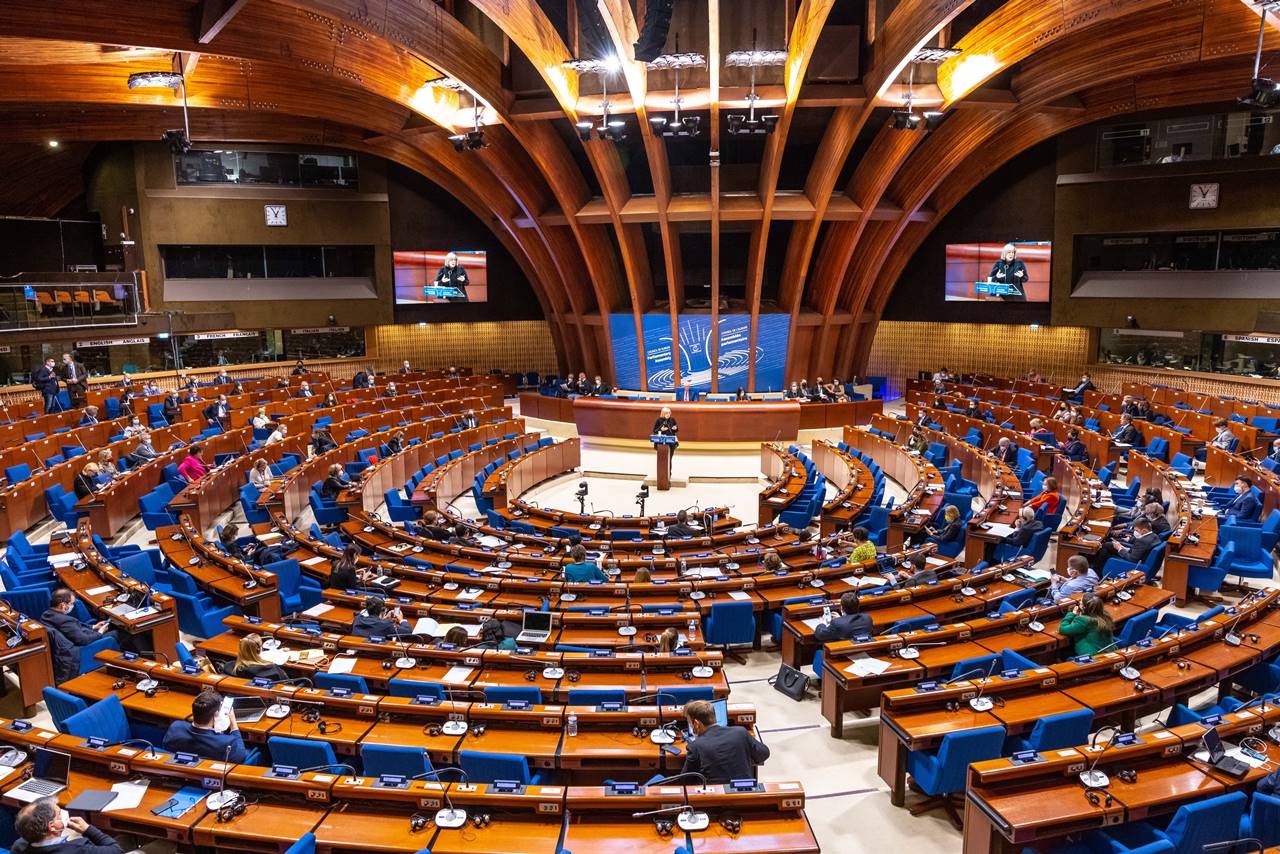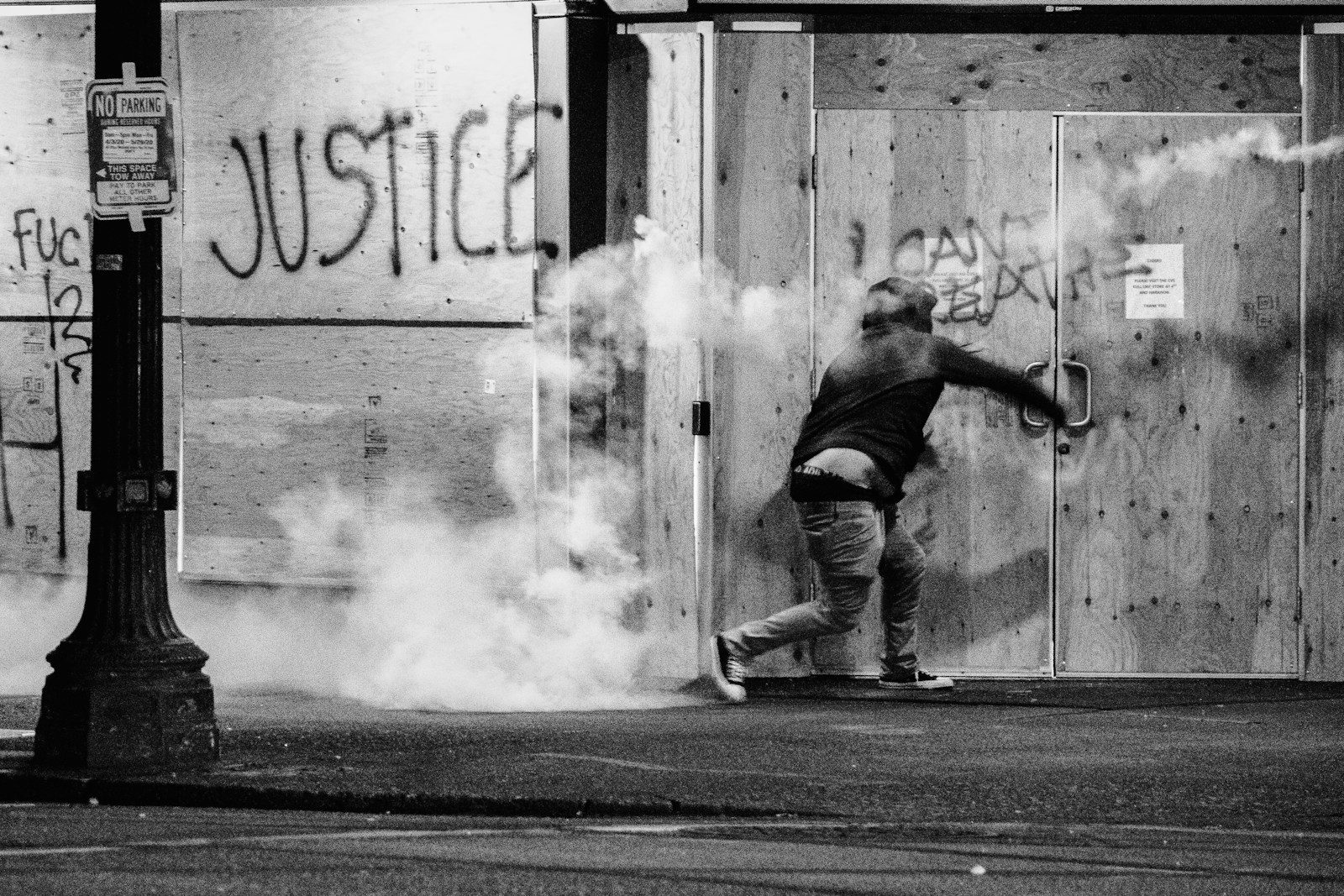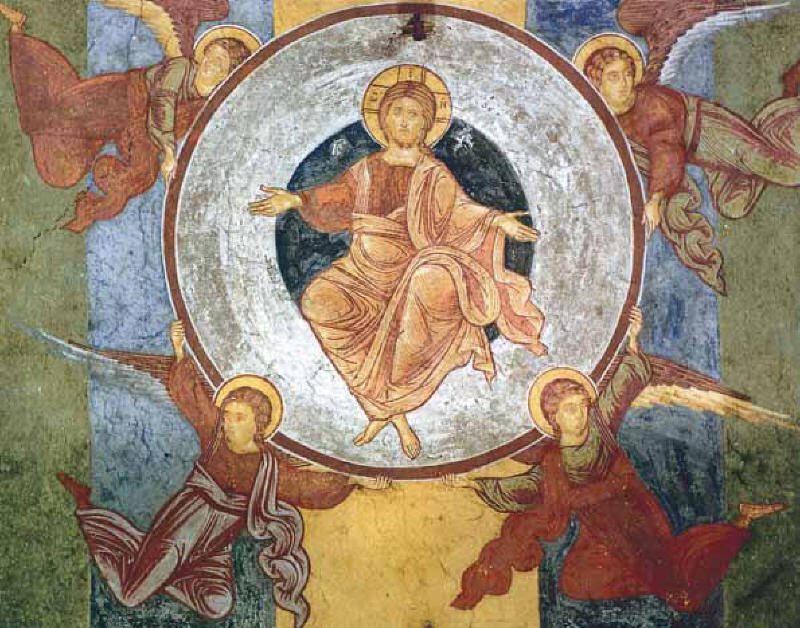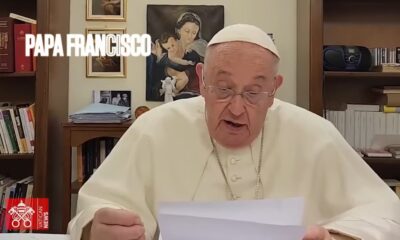Politics
Access to official documents held by public authorities: Council of Europe evaluates compliance with the Tromsø Convention in 11 states

Strasbourg, 16.07.2024 – The Council of Europe’s Access Info Group (AIG), an independent group of experts created to monitor the implementation of the Council of Europe Convention on Access to Official Documents by its parties, published today its first baseline evaluation reports on 11 states: Bosnia and Herzegovina, Estonia, Finland, Hungary, Iceland, Lithuania, Montenegro, Norway, the Republic of Moldova, Sweden and Ukraine.
The reports contain comprehensive analyses of the laws on freedom of information in these states and their compliance with the Tromsø Convention. In light of its findings, the AIG makes specific recommendations to each country on issues such as the exclusion of documents containing personal data or other content from the application of these laws, and limitations to the right to access official documents.
Other recommendations concern excessive length of review proceedings in case of access denials and shortcomings in procedures for deciding on access requests, for example, excessive discretion provided to public authorities not to release the requested information or failure to provide assistance to applicants.
The convention, in force since 1 December 2020, is the first-ever binding international legal instrument to recognise everyone’s right to access official documents held by public authorities upon request.
It lays down minimum obligations for its parties to guarantee the right to access official documents, balancing the protection of the public interest in transparency with the protection of other legitimate interests, such as national security, defence and international relations.
The treaty also establishes obligations on the procedures for handling requests for information and the review of denial decisions by an independent body or a court in case of request denials.
Reports:
| Bosnia and Herzegovina | Iceland | Republic of Moldova |
| Estonia | Lithuania | Sweden |
| Finland | Montenegro | Ukraine |
| Hungary | Norway |
* * *
The Access Info Group (AIG) is a body established by the Council of Europe Convention on Access to Official Documents (also known as the Tromsø Convention) to evaluate the treaty’s implementation by the parties in law and practice and to make recommendations to fully comply with its provisions. It is composed of ten independent experts in the field of access to official documents. A second monitoring body, the Consultation of the Parties, complements its work. So far, 15 states have ratified the treaty and another six countries have signed it with a view to its ratification.
Politics
Bangladesh under Fire: A Call for Justice and Accountability

Recent developments in Bangladesh have raised significant alarm within the international community, particularly regarding the announcement of a controversial “shoot on sight” policy. As violence escalates, the High Representative’s statement during the ASEAN Regional Forum Ministerial Meeting sheds light on the urgent need for accountability and justice. This blog post examines the troubling situation in Bangladesh, the implications for human rights, and the necessary steps toward restoring peace and order.
A Growing Concern: Shoot on Sight Policy
The alarm bells began ringing on July 27, 2024, when the High Representative conveyed serious concerns to Dr. A.K. Abdul Momen, Bangladesh’s former Foreign Minister, regarding the government’s newly declared “shoot on sight” policy. This directive, coupled with the unlawful killings reported in recent days, has sparked widespread condemnation and fear among citizens and international observers alike.
The repercussions of such a policy are both immediate and profound, threatening to erode trust in law enforcement and escalating an already volatile situation. The potential for human rights abuses is alarmingly high, and the High Representative’s statement reflects a strong stance against the government’s actions, underscoring the need for restraint and adherence to human rights standards.
Rising Violence and Accountability Demands
The situation in Bangladesh is exacerbated by reported violence, including attacks on law enforcement officers, torture, mass arrests, and widespread damage to property. These acts not only disrupt societal harmony but also propel the nation into a spiral of fear and distrust. The High Representative has called for thorough investigations into these acts, stressing that those responsible must be held accountable.
Accountability is vital in restoring public faith in the justice system. The need for an impartial investigation into these unlawful killings and violent acts cannot be overstated. Importantly, all individuals arrested must receive their due process, reflecting fundamental democratic principles and respect for human rights.
Protecting the Innocent: A Human Rights Crisis
Amidst the turmoil, it is crucial to highlight the indiscriminate nature of the violence that has swept across Bangladesh. Reports indicate that protesters, journalists, and even children have not been spared from excessive and lethal force employed by law enforcement. Such disproportionate responses are not only a blatant violation of human rights but also a significant threat to individual freedoms and civil liberties.
The High Representative’s statement underscores an essential truth: protection of the innocent should be paramount. The international community must stand in solidarity with the victims and advocate for a framework that prioritizes human rights, allowing Bangladesh to emerge from this crisis with renewed commitment to justice and equality.
The Path Forward: EU-Bangladesh Relations
As the High Representative pointed out, the developments in Bangladesh will be closely monitored, taking into consideration the fundamentals of EU-Bangladesh relations. The European Union has historically engaged with Bangladesh to promote sustainable development, human rights, and stability. However, these recent actions pose a significant challenge to the integrity of that relationship.
Moving forward, it is crucial for the Bangladeshi authorities to realign their approach, emphasizing respect for human rights and the rule of law. The EU is in a unique position to facilitate dialogue and encourage reforms that can enable Bangladesh to navigate this crisis while maintaining its commitment to human rights.
A Hope for Justice
The unfolding events in Bangladesh are a stark reminder of the delicate balance between governance and human rights. The High Representative’s concerns encapsulate the urgent need for an end to violence, accountability for wrongful acts, and the protection of civilian lives.
As the international community watches closely, it is essential for Bangladesh to reassess its approach, ensuring that all citizens can enjoy their rights without fear of retribution. Only through genuine commitment to justice and accountability can Bangladesh hope to restore public trust and pave the way for a peaceful and prosperous future. The world stands ready to support this journey towards achieving true justice and respect for human rights for all Bangladeshi citizens.
Politics
Venezuela’s Presidential Election: A Path to Democracy or a Road Paved with Irregularities?

As the dust settles from Venezuela’s recent presidential election, the European Union (EU) has provided a critical assessment of the electoral process, emphasizing the ongoing challenges faced by the nation. High Representative Josep Borrell’s recent statement sheds light on both the commendable aspects of Venezuelan civic engagement and the significant shortcomings in the electoral system. In this blog post, we will explore the implications of these recent elections for democracy in Venezuela.
The Heart of the Matter: Voter Engagement
The EU commends the determination of the Venezuelan people to exercise their democratic right to vote, highlighting the crucial role of civic participation in a healthy democracy. Despite severe political and economic instability, the willingness of citizens to come out and cast their ballots reflects a desire for change and a commitment to democratic principles.
However, Borrell notes that this determination comes against a backdrop of an uneven playing field, where the opposition’s participation has been complicated by various systemic challenges. The EU recognizes the efforts of opposition groups to engage in the electoral process under these difficult circumstances, emphasizing that the will of the people must be respected and upheld.
Lack of Transparency: A Call for Clarity
One of the most pressing concerns outlined in the EU’s statement is the lack of transparency in the electoral results. As Borrell aptly pointed out, the reported outcomes of the elections cannot be deemed representative of the people’s will until there is a full publication and verification of all official records from polling stations.
To instill faith in the electoral process, the EU urges the Venezuelan Electoral Council (CNE) to prioritize transparency, calling for immediate access to voting records and the publication of disaggregated election results. This call for clarity is crucial to restoring faith in the electoral system and addressing the grievances of Venezuelan citizens who feel disenfranchised.
Flaws and Irregularities: A Troubling Trend
Despite the commitment of Venezuelans to participate in the electoral process, credible reports indicate that the elections were rife with irregularities. The EU has expressed regret that key recommendations from the 2021 EU Electoral Observation Mission were not heeded. These recommendations aimed to address fundamental issues undermining the electoral integrity, such as obstacles to opposition candidates, deficiencies in the voter registry, and imbalanced media access.
These flaws not only tarnish the credibility of the elections but also reinforce the perception of a political landscape heavily skewed against the opposition, raising alarms about the future of democracy in Venezuela.
Human Rights Concerns: A Dark Cloud Over the Process
Borrell’s statement does not shy away from addressing the concerning human rights situation in Venezuela during the electoral process. Reports of arbitrary detentions and intimidation of opposition members and civil society activists underscore a climate of fear and repression that permeates the political arena.
The EU strongly advocates for the immediate release of all political prisoners, emphasizing that a genuine democracy can only exist with respect for human rights and freedoms. The call for calm and respect for the right to peaceful assembly is critical as tensions rise in the aftermath of the elections.
A Hopeful Path Forward: Dialogue and Engagement
Despite the challenges highlighted during the electoral process, the EU remains committed to supporting political and diplomatic efforts to foster dialogue and find a peaceful resolution to Venezuela’s political crisis. Borrell’s statement reiterates the EU’s support for both regional and international initiatives aimed at restoring the democratic legitimacy of Venezuelan institutions.
In these uncertain times, a collaborative and peaceful approach remains essential in guiding Venezuela toward a more democratic and just future.
Conclusion: Navigating the Future of Venezuelan Democracy
Venezuela’s recent presidential election has shed light on many systemic issues that need urgent attention. While the determination of the Venezuelan populace to vote is a beacon of hope, it is overshadowed by significant electoral irregularities and human rights violations. The EU’s strong stance on transparency, respect for political rights, and the need for constructive dialogue underscores the complex challenges ahead.
As the international community watches closely, the next steps for Venezuela will be crucial in defining its path toward democracy. Through sustained engagement and commitment to democratic principles, it is possible for Venezuela to navigate these turbulent waters and emerge as a strong, democratic nation that truly reflects the will of its people.
Politics
The leadership of Mount Athos requested additional information from the police about the action against “Esphigmen”

The Greek police have sent a letter to the Holy Kinotis (the community of representatives of the 20 Athos monasteries that make up the leadership of Mount Athos) asking for assistance in complying with a court order to release the Esphygmen Monastery, which has been held by schismatics for several decades .
Kinotis discussed the letter from the Greek police and asked for further information on how the operation would proceed, as well as assurances that there would be no incidents similar to those of 2013 or of December 2006, when footage of bloodied monks from the old and new brotherhood of the “Esphigmen” was circulated by the media, and wounded on both sides were hospitalized after a fierce battle. It was decided to ask the Police Directorate of Athos to clarify its request regarding monasteries to host a large number of police officers for a long period of time, as well as to clarify exactly what the police mean about the use of the roads and the passage of large vehicles on them.
Meanwhile, the deadlines, at least for this period, are very short. Enforcement is prohibited for the period from August 1 to 31, as provided for in the Greek Code of Civil Procedure, so any action by the bailiff to vacate the buildings can be taken until next Wednesday, July 31. Otherwise, the procedure will be repeated from September onwards.
This was reached after two decisions of Greek courts – the Court of First Instance of the regional city of Poligiros in 2018 regarding real estate owned by the schismatics, and the Court of Appeal of Thessaloniki in 2020 regarding movable property. The two decisions were appealed by the Zealots at the Esphygmen Monastery, but the requests for annulment were rejected and made final by a decision of the Supreme Court in June 2023. Now a bailiff has taken over the execution of the decisions, and the Police Directorate of Athos is asking for assistance to that the judgments of the court may be executed and the buildings of “Esphigmen” may be vacated.
So far, the state has made many attempts to restore order on the Holy Mountain, the most dramatic being the attempt in 2013, when it came to incidents. The schismatic monks threw Molotov cocktails at the bailiff and the team that smashed the entrance to the Konak (the monastery’s representative office in Kareia, the administrative center of Athos) of Esphygmen using heavy machinery. These incidents resulted in several monks being sentenced to years in prison, and among those convicted was the abbot of the Zealots, Methodius.
According to the statutes of the Holy Mountain, schismatics who are not part of the canonical Orthodox Church cannot rule any of the twenty monasteries. At the same time, in the monastic republic there are separate Zealot cells inhabited by monks who are not in communion with the canonical Church and are part of various old-calendar factions. The Esphygmen Monastery was officially declared schismatic in 2002 and has since become a banner of the “church resistance” of various movements – Old Calendarists protesting against the ecumenism of the Ecumenical Patriarch, COVID-dissidents, opponents of the “official church” from all Orthodox countries, supporters of the so-called non-systemic parties, populist political movements, etc. His “Orthodoxy or Death” black flag, raised in 1974, became a byword for religious fanaticism. Any attempt to restore order on Athos was met with reactions “in defense of the persecuted for the faith” in Athens and outside Greece. Such a wave of sympathy for the Zealots in “Esphygmen” is now also rising in Russian media, because it is an opportunity for another attack on the Ecumenical Patriarchate, without mentioning that the Esphygmen monks are not in church communion with any local church, including and with the Russian Orthodox Church. The case is used by the zealots themselves as another opportunity to reinforce their image as “confessors”, an image that religious people are very sympathetic to.
Already in October 2022, the Greek newspaper “Kathimerini” wrote about a police investigation in connection with Russian money transfers to private accounts of Mount Athos
The Anti-Money Laundering Department then investigated suspicious money transfers from abroad to individual accounts of monks from Mount Athos. In 2022, the case developed without much fanfare, with a new development received after the start of the war in Ukraine and the sanctions imposed by the West on individuals and legal entities associated with the Kremlin, which has traditionally maintained close ties with the monastic republic.
A source of the publication familiar with the matter revealed that there are at least twenty transactions that in the last twelve months are considered suspicious and are being investigated by the officials of the service. It is about the movement of large sums of money from banks and foreign money transfer companies, and the money ends up not in the accounts of monasteries, which in the recent past were visited by high-ranking Russian officials, but in the individual accounts of monks from Mount Athos. Competent sources explain that these transactions were considered suspicious by credit institutions in the country mainly because they involved transfers of unusually large sums amounting to tens and even hundreds of thousands of euros. In one case, a transfer of more than one million euros was discovered, but the investigation concluded that the money was intended to finance a mission in Africa.
Most of the money transfers investigated are related to funds coming from Russia. The newspaper’s sources clarified that the money found in the monks’ accounts did not come from legal entities or individuals that have been subject to war-related sanctions since February last year. One of the scenarios being considered is that wealthy Russians have decided to move their money out of Russia with the help of Athos monks to preserve their funds in the event of a collapse of their country’s financial institutions or even a freeze on their funds by Kremlin because of the war.
For the same reason, in recent months a number of Russians have undertaken or expressed interest in buying properties in Greece.
“No evidence has emerged to fully corroborate the information that the transactions are part of a broader, organized effort by Russia to infiltrate the Holy Mountain,” a knowledgeable source said. “These efforts are taking place mainly through business circles and political circles,” he added, referring to the recent data of the US intelligence services on the transfer of three hundred million dollars from Russia to parties and politicians in Greece since 2014.
In addition to the funds of Russian origin, several of the cash deposits of monks from Mount Athos, which are the subject of the investigation by the Anti-Money Laundering Department, were made by people from Balkan countries, mainly Serbia, Romania and Bulgaria. The auditors do not exclude the possibility that this is money from illegal activities that is legalized in the form of donations to the monks.
-

 EU & the World4 days ago
EU & the World4 days agoAshanti & Nelly Welcome First Child Together & Reveal Baby Boy’s Name
-

 Sports4 days ago
Sports4 days agoAtalanta: PSG-Lookman, there is news
-

 Politics4 days ago
Politics4 days agoPoland’s Former Prime Minister Mateusz Morawiecki Eyes Leadership of European Conservatives and Reformists
-
Travel5 days ago
New Brussels to Venice night train: The 9 cities en route, what it will cost and how to book
-

 Sports4 days ago
Sports4 days agoDucati, Pecco Bagnaia-Marc Marquez duel: “Valentino Rossi ready to step in”
-

 EU & the World4 days ago
EU & the World4 days agoLil Jon Brings the House Down at the 2024 DNC With ‘Turn Down for What’
-

 Health & Society4 days ago
Health & Society4 days agoPope Francis calls on religions to unite to reduce demand for drugs
-
EU & the World4 days ago
Mike Lynch Yacht Update: Fifth Body Recovered Off Coast of Sicily








